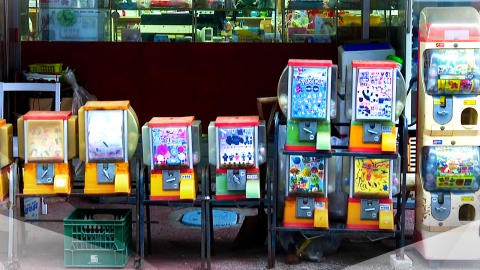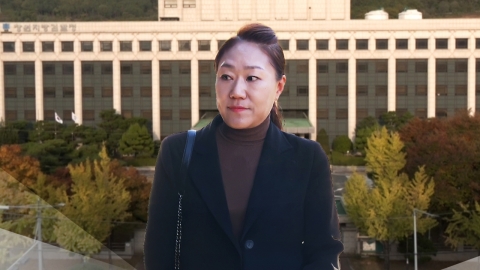In the midst of the rainy season, Guatemala, Central America, is experiencing an unseasonable drought these days.
Due to the long drought, crop yields are expected to decline significantly this year compared to previous years, and there are concerns that there may be insufficient water to drink right away when the dry season comes in January.
Farmers' worries about the cracked fields are deepening day by day.
Reporter Kim Sung-woo reports.
[Reporter]
Rincon Village, about 250 km east of the capital Guatemala City.
It's time to harvest corn, but the crops are not properly formed, and the fields are split wide.
It is rainy, but it is because it has been affected by a drought that has lasted for more than two months since the end of August.
Farmers, who mainly grew corn or red beans, are getting worried day by day.
[Alpredo Jimenez / Victim Farmers: We used to produce 800 to 900 kg of red beans per 7,000 square meters, but we don't expect it this year. If it doesn't rain within a few days, I think I can only harvest about 50 to 100kg.]
The expression of only one bucket of water is dark.
It can withstand it for the moment, but residents are worried that they may not even have enough drinking water when the dry season hits soon.
[Carlos Monroy / Victim farmer: The village doesn't even have enough water to eat. It's still rainy season, so there's a little water, but in January and February, the dry season, the spring water dries up, so you'll have to wait a day for your turn to come.]
Guatemala, which has been hot for more than two years, has been raining for an average of 16 to 22 days a month during the rainy season, but now it is turning into a torrential downpour for about 10 days.
Experts say this has not happened in the past 60 years, and that abnormal temperatures and El Niño events in the Atlantic, Caribbean, and Gulf of Mexico may have affected it.
[César George / Guatemala Meteorological Department Forecaster] Neglecting forest development has been covered with concrete. As a result of this, the maximum temperature rises, but the minimum temperature does not go down as severely as it did in the 70s and 80s.
Guatemalan rural areas and farmers, who are still poor in water intake and storage facilities despite abnormal high temperatures and droughts, are now urging the government to come up with a fundamental solution to repeated crop damage every year, while also appealing to the international community for active attention.
I'm Kim Sungwoo from YTN World in Guatemala.
※ 'Your report becomes news'
[Kakao Talk] YTN Search and Add Channel
[Phone] 02-398-8585
[Mail] social@ytn.co.kr
[Copyright holder (c) YTN Unauthorized reproduction, redistribution and use of AI data prohibited]






![[Y ranking] Fashion best Hani vs. Worst Refined Rice](https://image.ytn.co.kr/general/jpg/2024/1124/202411240801017328_h.jpg)


